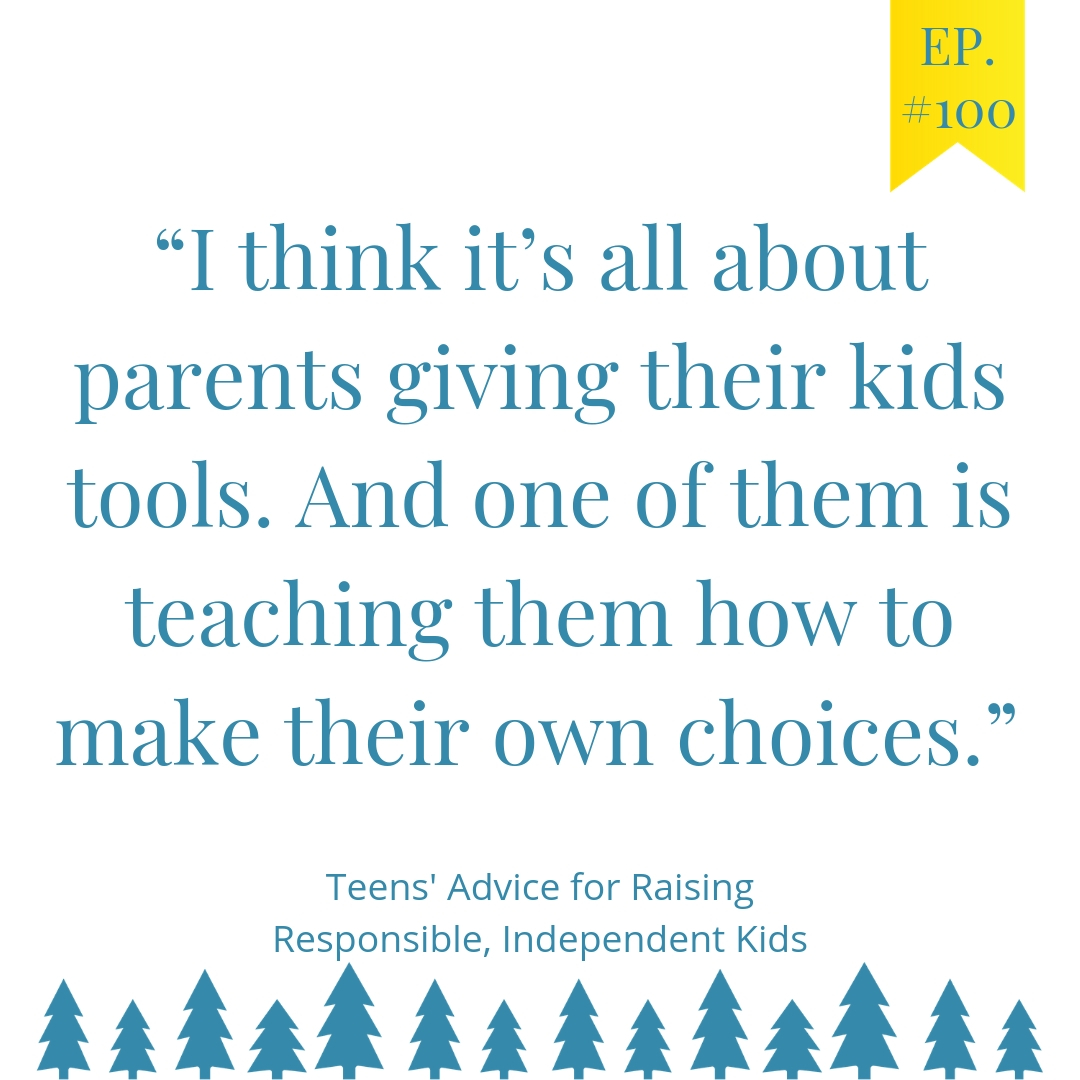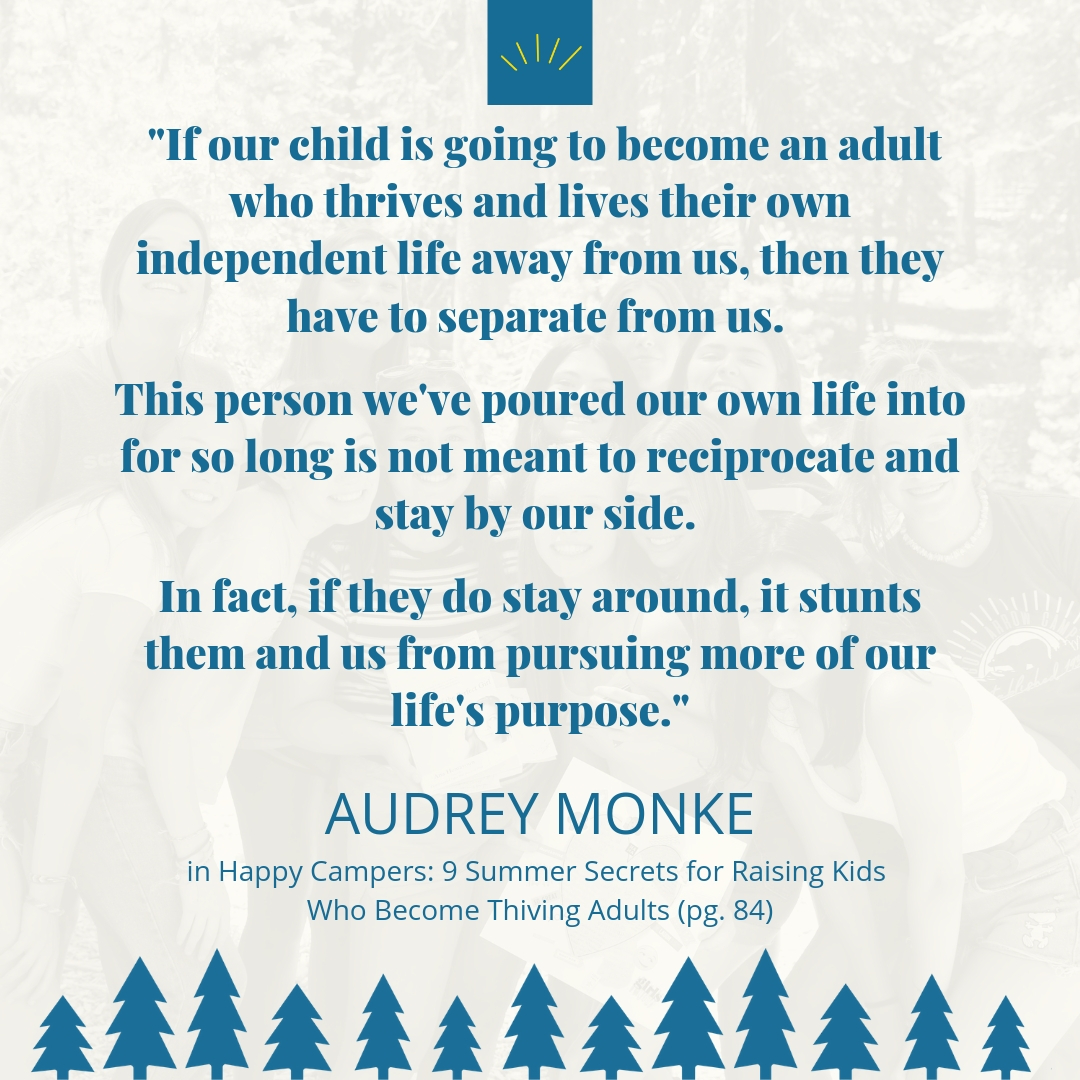Ep. 100: Teens' Advice for Raising Responsible, Independent Kids
Sunshine Parenting - Un podcast de Audrey Monke

Catégories:
In Episode 100, I'm chatting with an amazing group of young adults ages 16 and 17 who participated in a month-long junior counselor program. They share their thoughts on ways parents can raise thriving, independent and responsible young adults.
BIG IDEAS
- To help kids learn, gain confidence and independence, there are things parents should be letting their kids do early on, such as:
- traveling alone, navigating the airport, even flying by themselves
- packing bags, getting their own school stuff together
- doing their own laundry
- cooking (especially holiday meals),
- managing their time
- Establish expectations and a level of trust with your teen.
- Using technology to track your kids can cause unnecessary stress.
- Camp is a great break for parents because they don’t track their kids. They know they’re safe and so they can relax.
- Talk ahead of time about safe, comfortable ways to communicate with your teen while they are out so that you can be there to help when needed.
- Trust first. Trust that your child is responsible until they prove you wrong.
QUOTES
Audrey: "When parents are there (kids) just kind of default to letting them do it all because they’re so used to doing it. It's easy for parents to just drag (kids) along. But parents can start putting kids in charge, even when they’re there, and they can start that really young.”
Audrey: “When you think about college and who you want in your dorm, you want people who’ve had experience taking care of themselves a little bit and living in a shared space.”

Audrey: “When kids are going to preschool and you’re helping them get their lunchbox ready, that is appropriate. But I think sometimes it just keeps going a little too long. You could switch over to just saying, ‘Okay not that you’re in (whatever grade) you get to start being in charge of remembering your own lunch’ and that kind of thing.”
Audrey: “If someone else packs your backpack for you every day, at what point do you figure out what you need and how to do it yourself?”
Audrey: “Being aware that you have things to learn is the starting point. A lot of it is your responsibility to figure out. So, if your parents empower you like, ‘Hey—what are the things you want to learn this year?’ that is a big deal."
Audrey: “It’s kind of interesting how focused we are on academic stuff, but we neglect to learn some things that are part of being an independent person like being able to take care of your belongings, your laundry, your feeding, all that stuff.”
Teens: “Kids love to cook, too. Instead of saying, ‘No, can I just get this done?’ allow them to do little tasks like mixing the brownie mix, cracking the eggs. Encouraging that at a young age spikes interest and eventually, you don’t even realize that you already learned how to scramble eggs or make a quesadilla.”
Teens: “I wish my parents gave me more responsibility and made me feel like they trusted me. My parents do track me wherever I go, check all my social media, look at my phone and I have no privacy. That makes me feel like I’m not trusted or like I don’t have as much of my own life. If they gave me more freedom, I feel like it could be better.”
Audrey: “The problem is that you can’t prove to someone that you can do something until you’re given the opportunity to try it.”
Audrey: “We’re living in a time where parents are very fear-based. They’re so worried that something terrible is going to happen and we believe that if we know where you are, something terrible is not going to happen. But it’s kind of weird because just knowing where someone is doesn’t mean that or really make the difference.”
Audrey: “If something’s not going well, I want my kids to come to me and ask for advice if they need me to help but I don’t want my kids to be thinking that I’m going to take care of it for them.”
Audrey: “Anything that someone else if doing for you means that there is no motivation to figure it out for yourself. If you know someone else is going to take care of it, why would you start?”
Teens: “If you establish expectations and your kids know that you’re there if needed but also what is expected of them and if you want your kids to do those things, then there’s a level of trust that exists that is necessary for a healthy relationship.”
Audrey: “I think it’s causing a lot of stress for parents because now they think they’re supposed to be checking their kids’ everything, every day. That is like a whole other job.”
Audrey: “There's so much dangerous stuff happening on college campuses and kids go from like the kind of things that we're all talking about to basically being unsupervised 100% of the time. And for a lot of kids it leads to just bad decisions because they haven't had much practice. Because if you've been so closely monitored, you haven't had any practice making decisions.”

RELATED:
Ep. 92: Creating Strong Relationships with Teens
Ep. 27: Raising Teens who Thrive with Stephen Wallace
https://sunshine-parenting.com/2018/05/what-do-kids-need-at-different-ages/
LINKS:
Audrey's website www.sunshine-parenting.com
Audrey's email: [email protected]
I wrote the book, Happy Campers, 9 Summer Camp Secrets for Raising Kids Who Become Thriving Adults, because I really wanted to share with parents and teachers some of the simple strategies that we use at summer camp to create these really amazing experiences for our campers, where they grow in their confidence, social skills, and happiness, over just a few weeks at camp. You can find out all about Happy Campers on my website at www.happycampersbook.com.
If you're interested in joining a group conversation, seeing videos and additional resources related to Happy Campers, there's lots more information about my summer read-along on my website, in the Book Hub.
